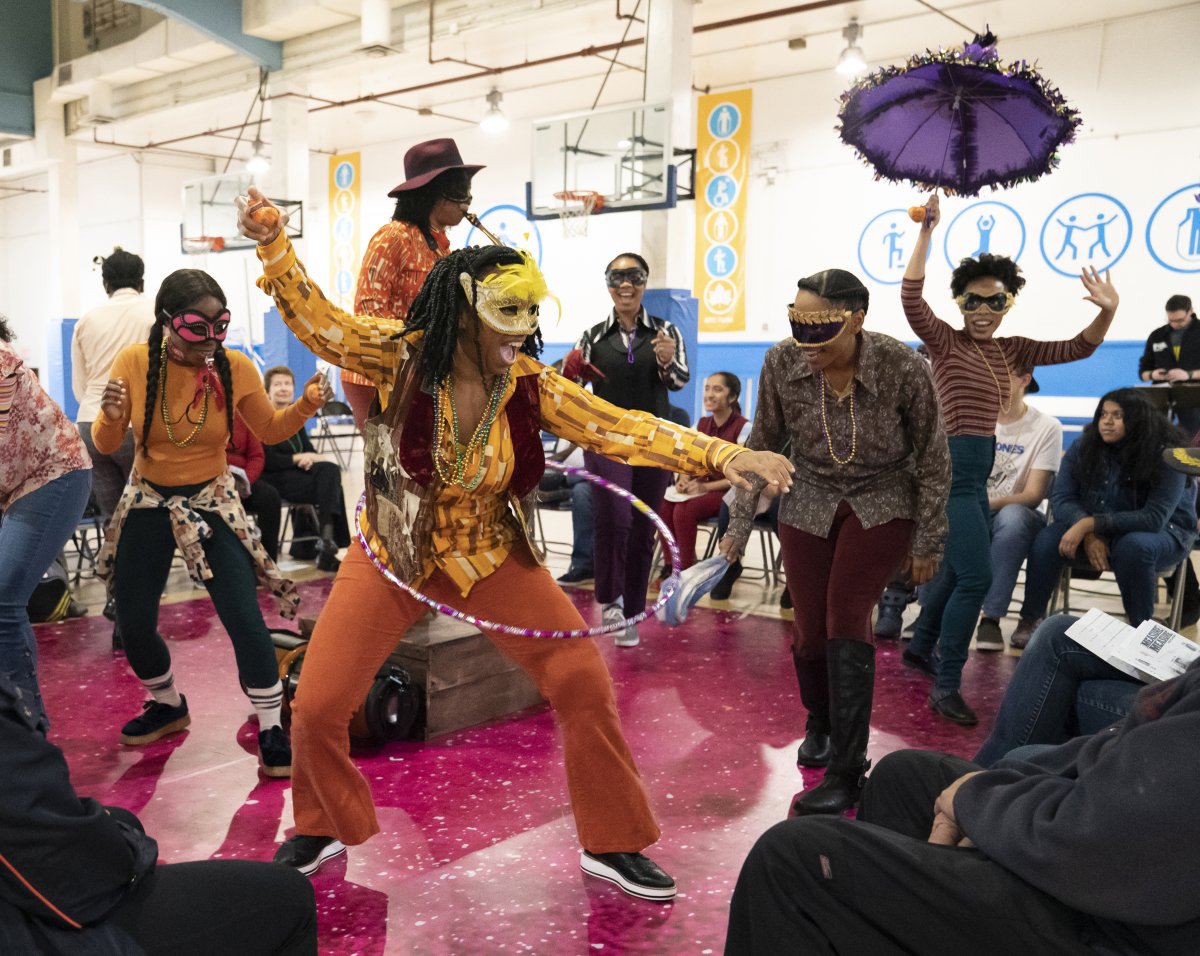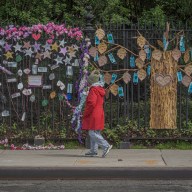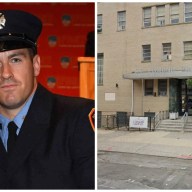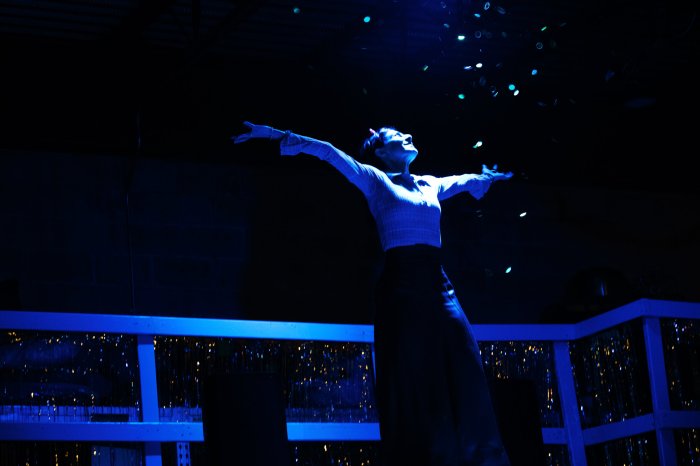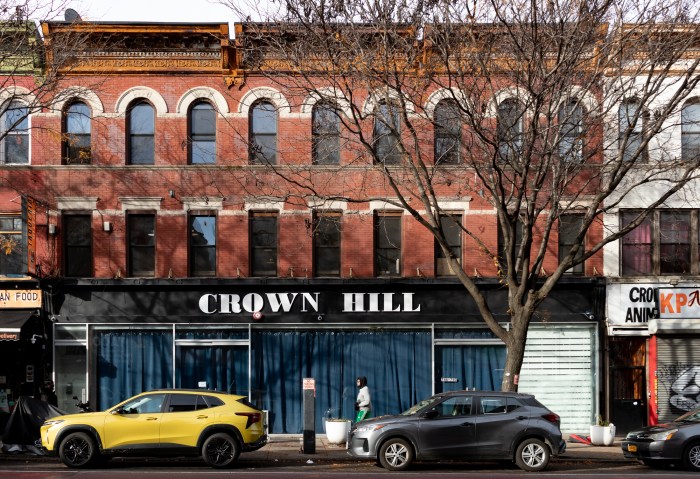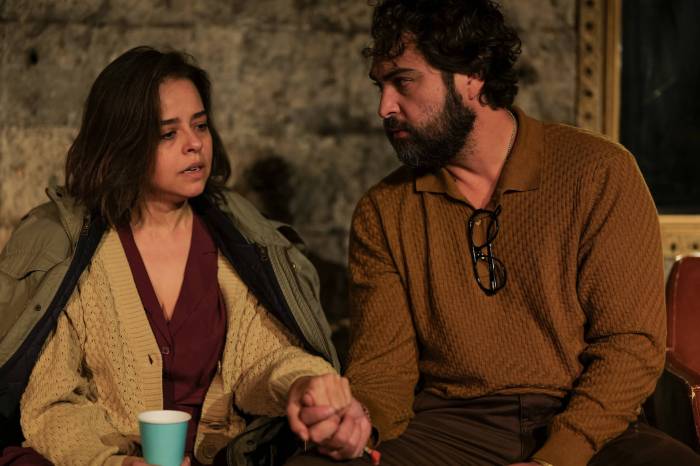They’re taking the Measure of a man!
An all-female, all-black cast is taking one of Shakespeare’s so-called “problem plays” on a tour of the five boroughs, visiting community centers, shelters, prisons, and other spots that rarely see live theater. The all–women of color production of “Measure for Measure,” stopping at the Weeksville Heritage Center on Nov. 16, offers a uniquely clear-eyed look at the Bard’s tale of sexual harassment and abuse of power, said its director.
“I think by having an all-female cast, it gives us the opportunity to look at it from the perspective of these women,” said LA Williams, director of the Public Theater’s Mobile Unit show. “We’re no strangers to patriarchy and misogyny, but to see what that looks like through their eyes — to see them embody these characters and show their experience of it — the male audience are really having a chance to see it in a new way.”
The play focuses on a corrupt judge, Angelo, who threatens to execute the brother of a young nun unless she agrees to have sex with him. Many male actors try to find Angelo’s softer side, said Williams, but the women in this play are ready to show him as a straight-up villain.
“By having women play these characters — especially these bad characters — we tap into the truth and ugliness of these characters much quicker,” he said. “They’re only interested in the truth, and the craziness and the violence, rather than trying to soften it.”
“Measure for Measure” takes place in a lawless city, and this production is set in New Orleans in 1979 — a year when Mardi Gras was cancelled due to a police strike, noted Williams. The setting is conveyed through second-line music, dancing, and masquerade outfits, he said giving the show a fun, free-wheeling vibe during its lighter scenes. The setting also seemed appropriate for the traveling show, since the people of New Orleans threw their own parties in the absence of an official parade.
“Although it was cancelled, they still celebrated,” said Williams. “They took to the streets, and the idea of performing for themselves, and for their neighbors, seemed right for us.”
The traveling show will perform at several correctional facilities during its run. There were some concerns about how male prisoners would react to a cast of women, said Williams, but their experience has been entirely positive.
“They completely understood the commentary that we’re trying to make on misogyny and patriarchy and abuse of power. It’s been really, really, fascinating to watch the audience get it,” he said.
After the tour is complete, the production will settle at the Public Theater in Manhattan for a three-week run, starting on Nov. 18.
“Measure for Measure” at Weeksville Heritage Center [158 Buffalo Ave. at St. Marks Avenue in Brownsville, (718) 756–5250, www.weeksvillesociety.org]. Nov. 16 at 2 pm. Free.


